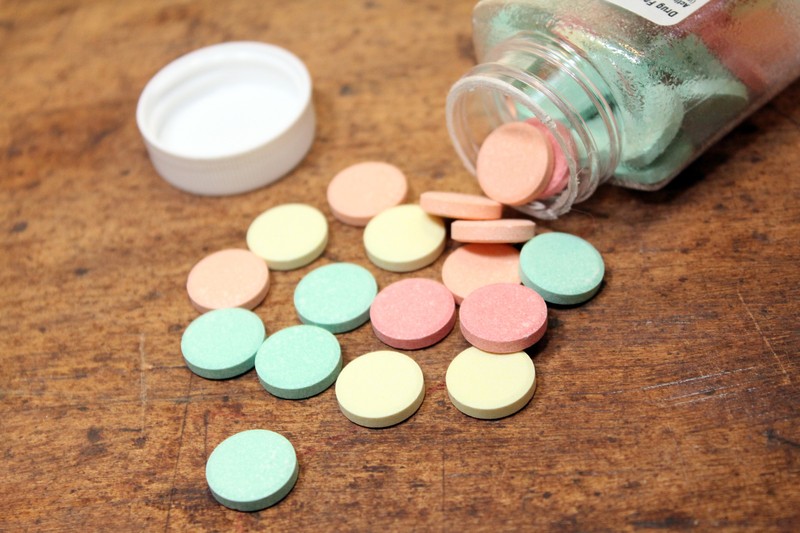It's often surprising just what over-the-counter medications are capable of. What makes them great is that you can stock up on as much as you need without having to worry about a prescription, although if you buy a bunch of crates of OTC drugs, some crime labs may show up on your doorstep out of professional curiosity.
See what you can do with antacids in the article below.
The most prevalent radioactive element in nuclear fallout is likely to be iodine-131 (a radioactive isotope of iodine). The treatment, as most preppers know, is potassium iodide (KI) or potassium iodate (KIO3) tablets. The pills flood the body with safe non-radioactive iodine, reducing possible uptake of the radioactive iodine by the thyroid.
For exposure to radioactive strontium-90 or radium, ordinary antacids, available Over-The-Counter, are suggested, in two steps.
1. The first step in the treatment blocks absorption of these two radioactive elements in the GI tract. This involves taking a dose of aluminum hydroxide gel (an OTC antacid) or a dose of Gaviscon, which contains aluminum hydroxide. The use of aluminum hydroxide is the preferred “blocking” treatment.
An alternative is to take calcium phosphate, which is an OTC calcium supplement. A different alternate treatment is to take sodium alginate (alginic acid). This latter compound is one of the “inactive” ingredients in Gaviscon. So if you take the Gaviscon, you’re getting two effective ingredients. Gaviscon is available as tablets or in liquid form.
You take the first step in this treatment as a one-time dose. You take the second step in this treatment on a daily basis.
2. The second step in the treatment for internal contamination with strontium or radium is the antacid/calcium supplement calcium carbonate (e.g. TUMS). Calcium carbonate competes with strontium and radium for bone binding sites. Basically, both strontium and radium are “bone seekers”; they will be taken up by the body (mistaken for calcium) and stored in the bones and teeth. That is not what you want. Strontium and radium remain radioactive for, well, essentially the rest of your life. But if you have enough calcium in your system from the TUMS (or generic calcium carbonate), then the strontium and radium are diluted and are less likely to be stored in your bones and teeth. Your system takes up the ordinary calcium instead of the radioactive strontium or radium.
Antacids will be great to have in any case because they will help to sooth an upset stomach and obviously will help tamp down heartburn, which is unpleasant enough even when it's not the apocalypse. Knowing that they can help protect your body from the absorption of radiation is great news for preppers because it means you can acquire a pretty respectable supply if you just pick up a bottle every time you go shopping.
This is great news for preppers and nuclear physicists, alike. If you want to learn even more about how to deal with a nuclear disaster, check it out at Prep Blog.

Nathan Vinkler!!